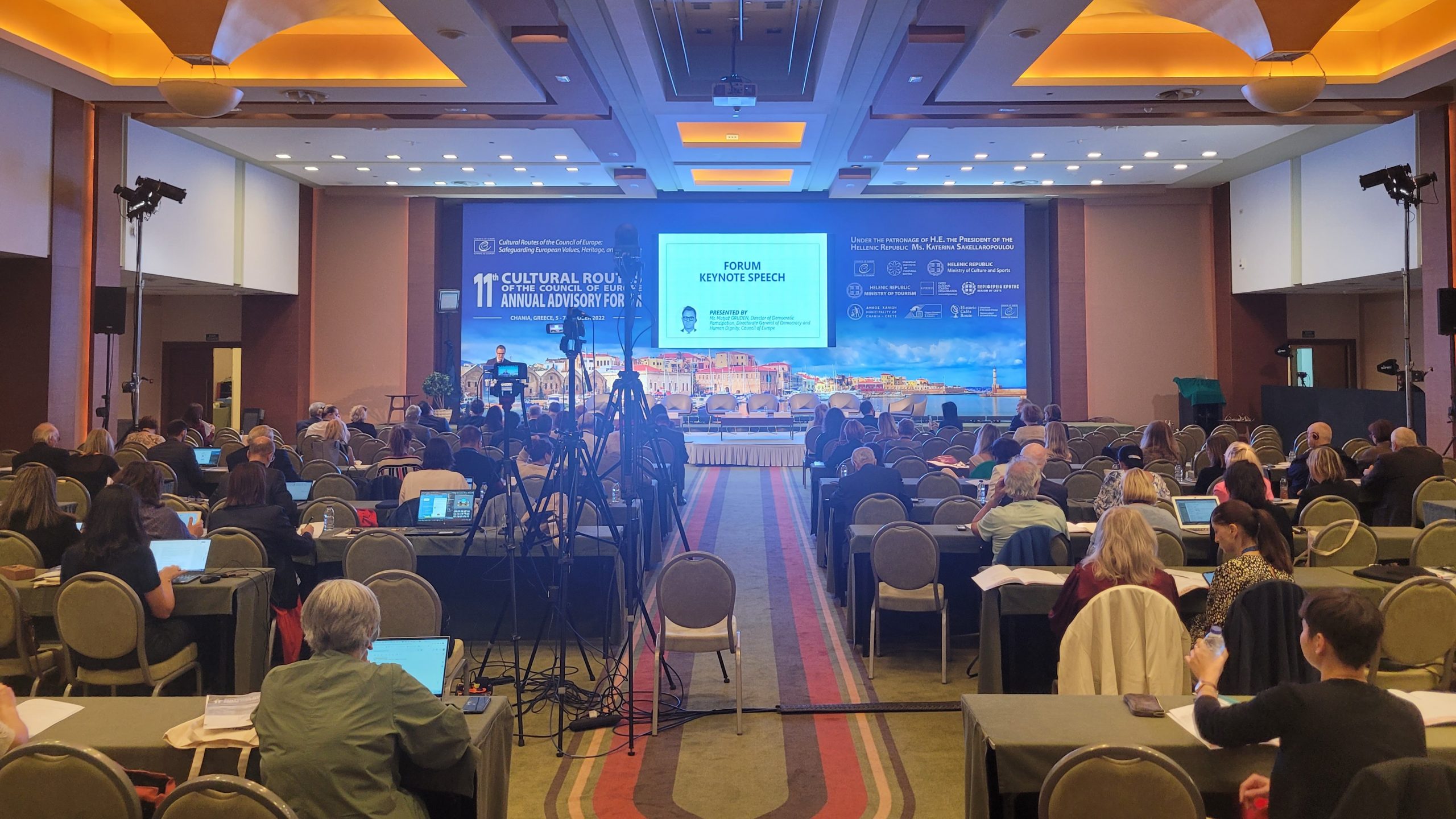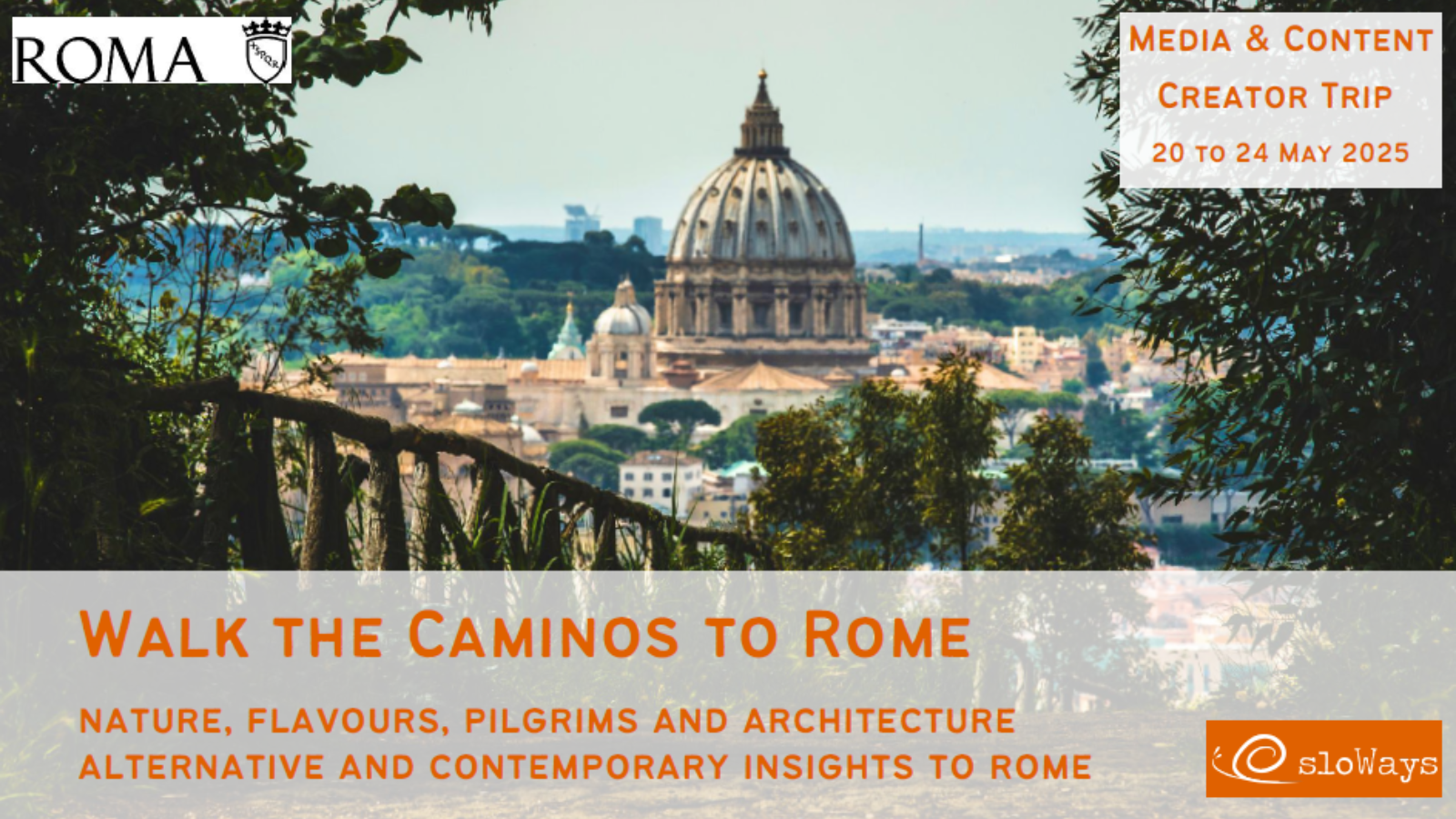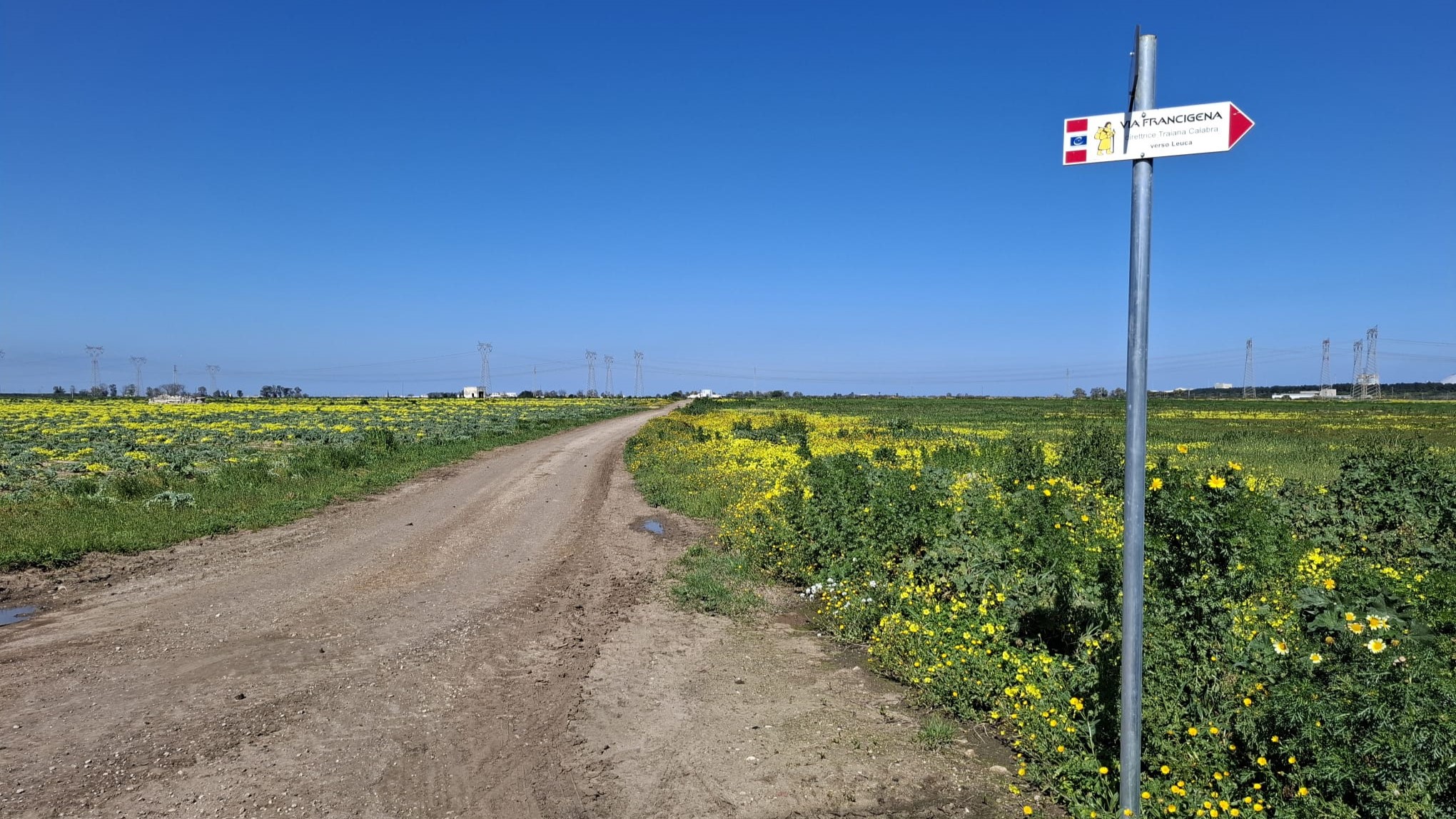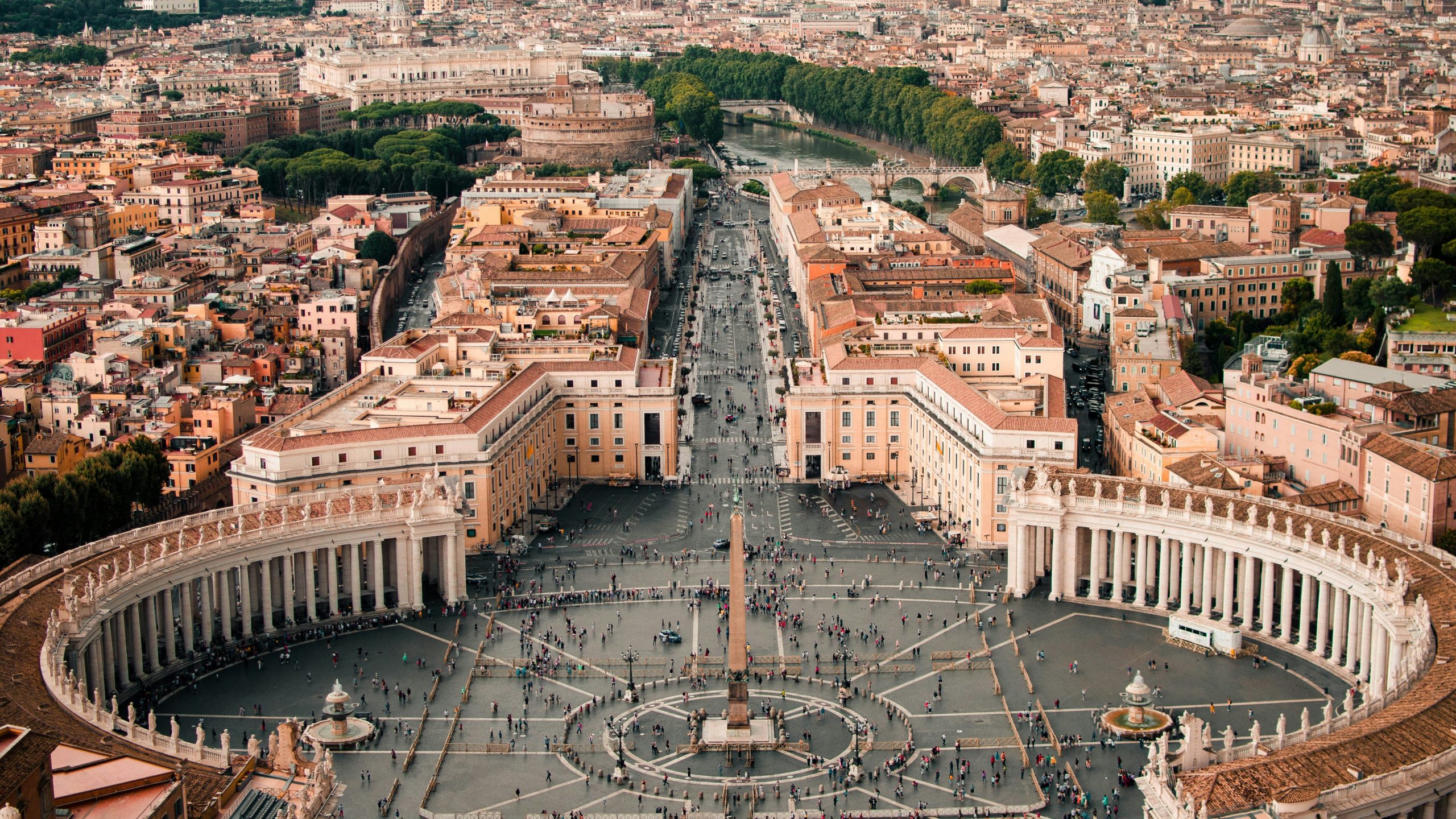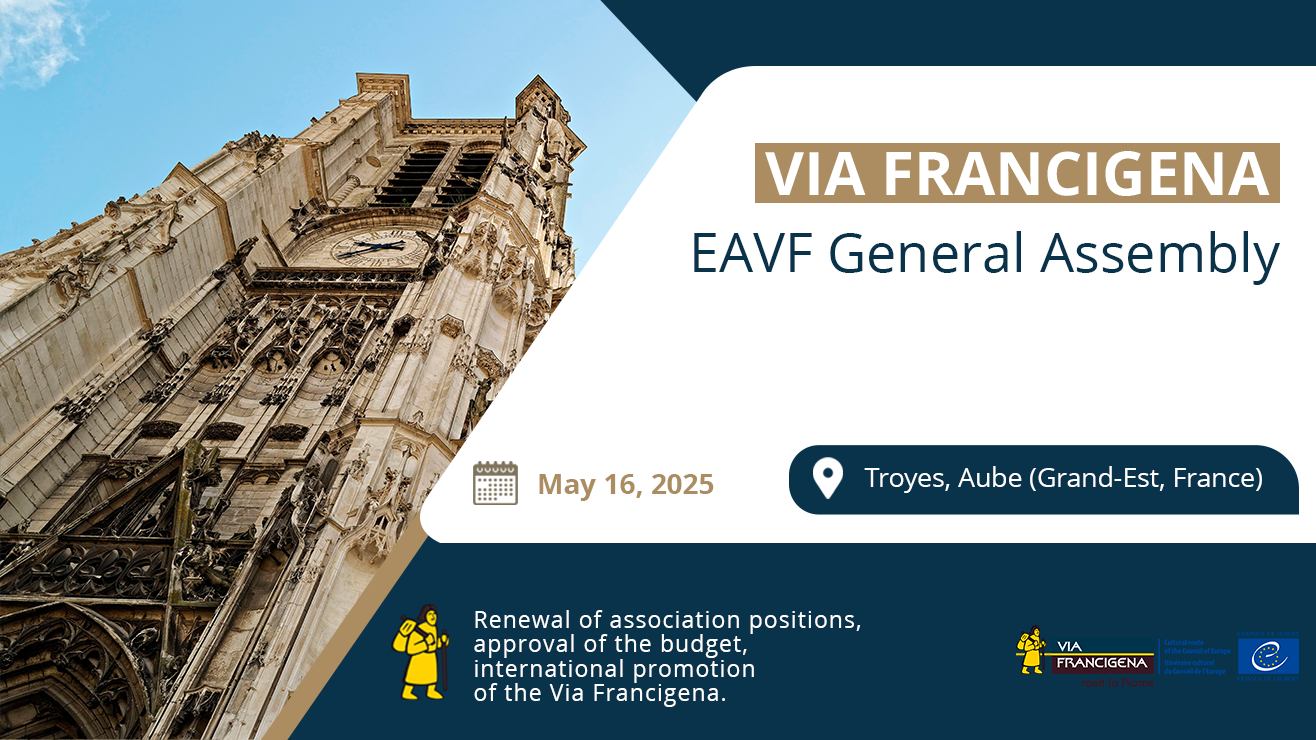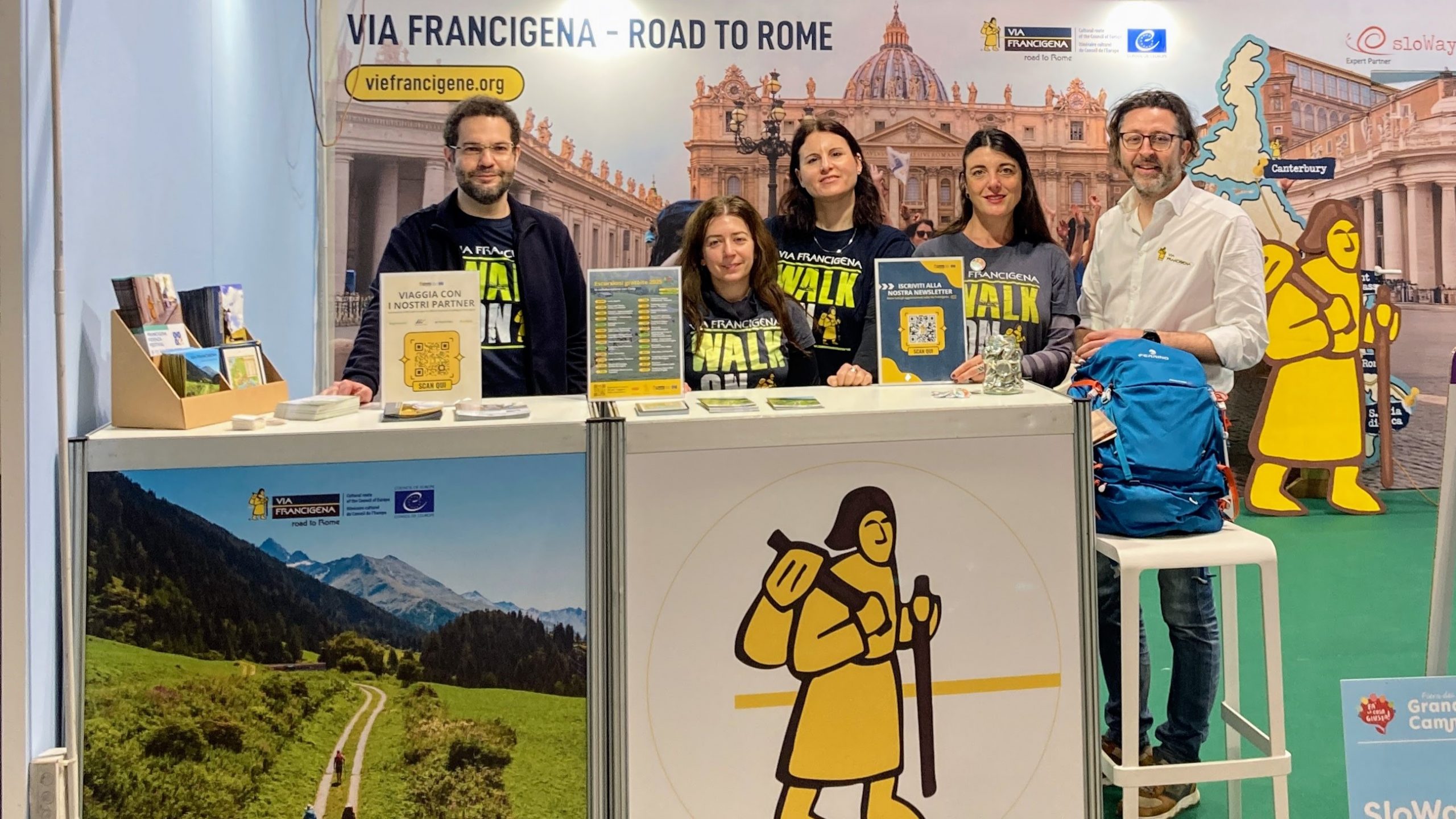The Cultural Routes Programme celebrated its 35th anniversary in Chania with three days of interactive sessions, workshops, debates in the presence of 430 international delegates.
The city of Chania, on the Greek island of Crete, hosted the event from 5 to 7 October, which was attended by over 430 delegates: from the Council of Europe to the European Union, from the World Tourism Organisation to UNESCO, from representatives of over 50 European Cultural Routes, certified and non-certified, to representatives of the Ministries of Culture of the countries that are part of the Council of Europe’s Enlarged Partial Agreement on Cultural Routes.
This year’s theme was ‘Council of Europe Cultural Routes: Safeguarding European Values, Heritage, Dialogue‘.
The European Association of Via Francigena Ways (EAVF) was represented by Luca Bruschi, Director, and Elena Dubinina, head of European projects and international relations.
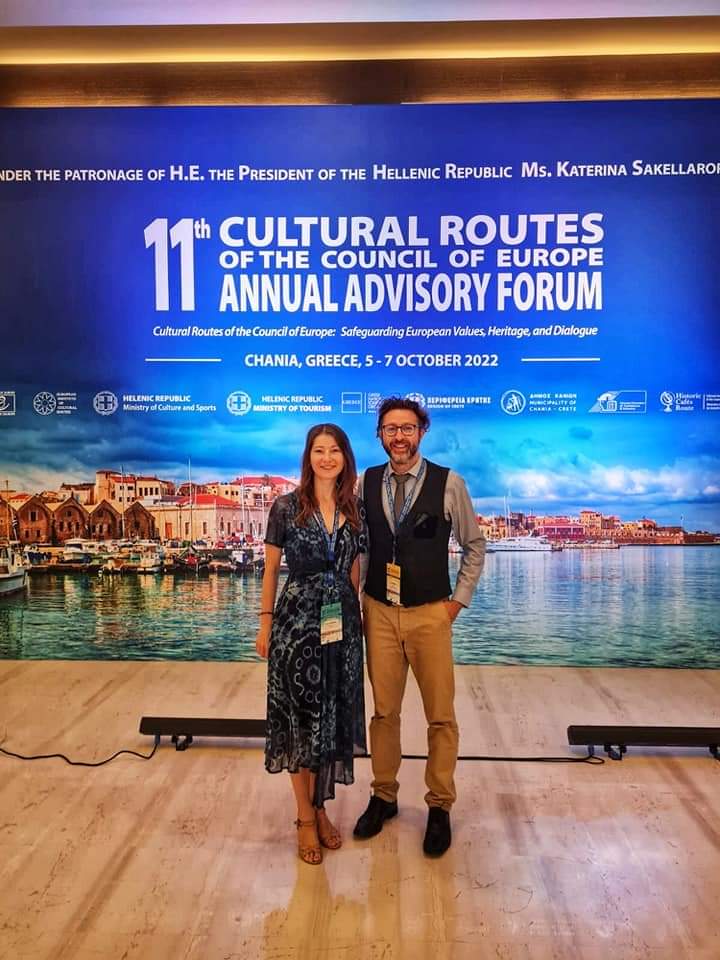
Luca Bruschi spoke during the plenary session dedicated to ‘Safeguarding Cultural Heritage‘, with a focus on the main challenges for the protection of cultural heritage and sustainable tourism use of the Via Francigena.
Elena Dubinina intervened in the session together with all the representatives of the routes to share the EAVF’s experience within the European project rurAllure (Horizon 2020 programme), which focuses on cultural heritage and museums along the pilgrimage routes.
During the Forum, the EAVF was able to strengthen relationships with the delegates of the cultural routes that have similar themes: Way of St. James of Compostela, Via Romea Germanica, St. Olav, Way of Stevenson, Via Romea Strata (in the process of certification).
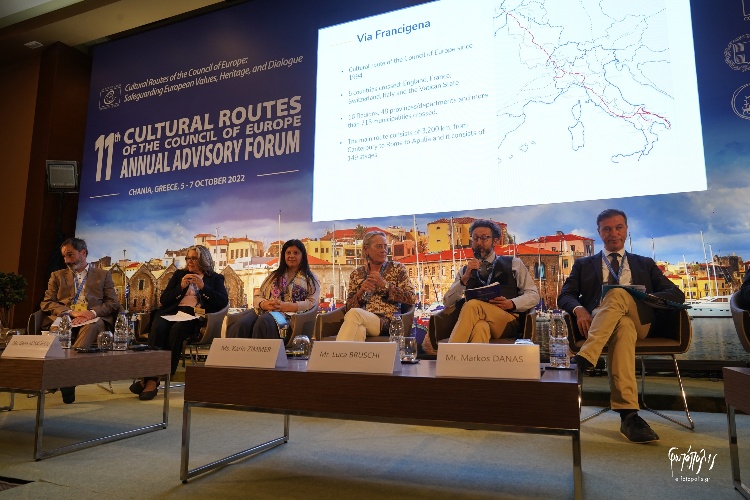
It was also an opportunity to meet the representatives of the Ministries of Culture of the countries crossed by the Via Francigena, such as Italy and Switzerland, but also the ministerial representatives of the countries present along the extension of the path towards Jerusalem, following the ancient Via Egnatia: Albania, Greece, Turkey.
The Via Francigena reaffirmed the European values underlying this cultural itinerary, which connects local communities, supports the economy in rural Europe, generates job opportunities for young people, and encourages cultural, interreligious and intergenerational dialogue.



